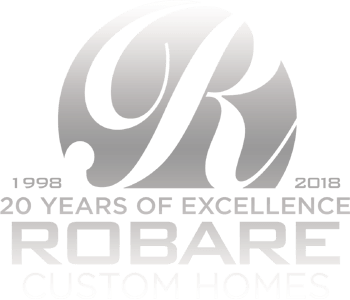25 Mar Springtime Home Maintenance
Many homeowners believe spring maintenance is all about the cleaning. Home maintenance aimed at various structures, appliances, and systems within the home is just as important. Follow this spring maintenance checklist to ensure your home is in optimal condition for the rest of the year.
Ensure proper insulation of window sills, door sills, and thresholds by filling cracks, caulking edges, or replace if necessary. Inspect exterior caulking, scrape out all of the eroding caulk and recaulk needed area.Proper caulking will help keep out heat and humidity in the summer and cold drafts in the winter, which will save money on your utility bills all year round. The best time to caulk a joint outdoors is during the Spring or Fall. That’s when the width of the joint is halfway between its seasonal extremes. A plastic drinking straw or a length of plastic tubing makes a handy extension tube for caulking hard-to-reach places. Secure the extender with duct tape.
Clean screening and check for holes. If holes are bigger than a quarter, that is plenty of room for bugs to climb in. Patch holes or replace the screen. Save bad screen to patch holes next year. To fix a small hole in a window or door screen, dab clear household cement over the hole with a toothpick. If the screens are plastic, test the cement on a scrap to make sure it won’t melt the material. Use the same technique to repair screen tears. Pull the two halves of the tear together and hold them in place with masking tape on one side. Apply the household cement to the tear, then smooth with a putty knife. When it’s dry, gently remove the tape and apply cement to the other side. Tighten or repair any loose or damaged frames and repaint. Replace broken, worn, or missing hardware. Wind can ruin screens and frames if they are allowed flap and move so make sure they are securely fastened. Tighten and lubricate door hinges and closers
To ensure proper operation and highest energy efficiency, check your HVAC unit before the beginning of each new season. Check and replace your furnace and air-conditioning filters every month. There are several types from which to choose, depending on your needs. For greater air quality, you can choose HEPA filters which last up to six months and can be cleaned with a vacuum nozzle.
Also, most air conditioners have a drainage hole on the base of the cabinet, beneath the evaporator fins. This hole needs to be kept clear in order for the air conditioner to work properly. To keep a dehumidifier working properly, remove its housing and let the unit dry completely. Vacuum every accessible surface and crevice.
Replacing the batteries in your smoke and carbon-monoxide detectors should be a twice a year event, in Spring and Fall. Also, dust or vacuum the detectors to keep them working at peak performance. Make sure you have a fully charged fire extinguisher that you can reach quickly and easily.
Cleaning your bathroom fans annually will ensure the air flow is optimal. Take the cover off, wash it in soapy water and clean the dirt off the fan blades. Be sure the power is off before you clean the fans.
Check the flappers on your toilets and replace them if they appear worn, before they start leaking and wasting water. All faucet handles should be inspected and cleaned inside to keep the screws from corroding. Use a rust remover if necessary.
To prevent foundation erosion as well as basement flooding, build up soil around the house and slope it away from the foundation. Low areas in the yard or next to the foundation should be filled with compacted soil. Spring rains can cause yard flooding, which can lead to foundation flooding and damage. Also, when water pools in these low areas in summer, it creates a breeding ground for insects.
Use a screwdriver to probe the wood trim around windows, doors, railings and decks. Make repairs now before the spring rains do more damage to the exposed wood.
Inspect concrete slabs for signs of cracks or movement. All exterior slabs except pool decks should drain away from the home’s foundation. Power-wash and then seal the concrete by filling cracks with a concrete crack filler or silicone caulk.
Have a qualified heating and cooling contractor clean and service the outside unit of the air conditioning system. Clean coils operate more efficiently, and an annual service call will keep the system working at peak performance levels.
Including these annual checks and repairs as part of your Spring cleaning routine will go a long way in preventing future repairs and keeping your home safe and comfortable.
Ready to build your own custom home? Click here to request a builder interview to find out what Robare Custom Homes offers.







